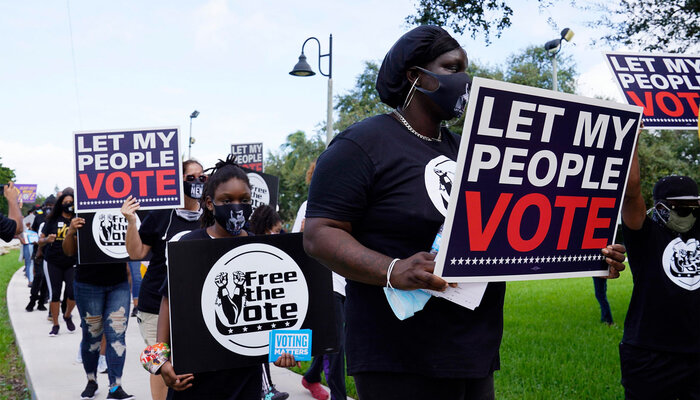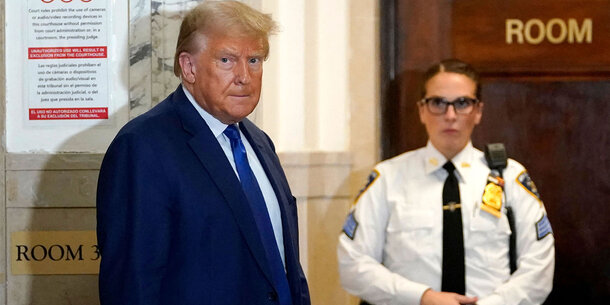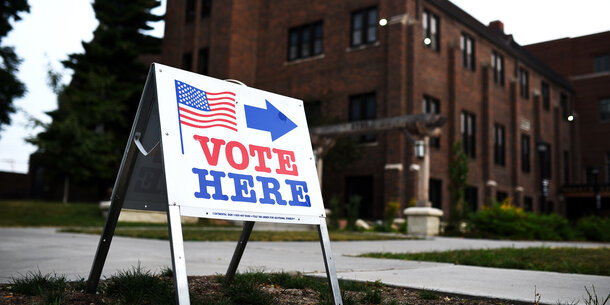Over the last 20 years, there has been significant, bipartisan momentum to restore voting rights to Americans previously convicted of felonies. However, millions of people remain disenfranchised today because of Jim Crow–era voting bans. Most of those citizens aren’t in prison — they’re living in and contributing to their communities, yet they’re denied a voice in our democracy. Congress can and should change that by passing the Democracy Restoration Act, a bill introduced today by Sen. Ben Cardin (D-MD) that would allow all Americans who are living in the community to vote in federal elections.
Today, all but two states and Washington, DC, have laws that prohibit citizens from voting for some period of time after a criminal conviction. As a result, as many as 4.6 million people across the country are barred from voting simply because of a past conviction. Most of them (nearly 3.5 million) aren’t incarcerated, but they’re still not allowed to vote. The Democracy Restoration Act, modeled off a Brennan Center proposal, would remove this barrier to the franchise for those citizens in federal elections.
The burden of criminal disenfranchisement laws in the United States isn’t felt equally among Americans — and that’s no accident. After the Civil War ended slavery, some states, especially in the South, adopted racist laws known as “Black Codes” to target Black citizens. At the same time, many states adopted broad laws that revoked the franchise from anyone convicted of a felony. The goal of these laws was clear: to deny the vote to newly enfranchised Black men. And today, they continue to have the same impact. Because of bias in the criminal justice system, Black adults are almost four times more likely than non-Black adults to be disenfranchised because of a past conviction.
The variation between states’ criminal disenfranchisement laws causes immense confusion — not just among would-be voters but also among government officials who often don’t understand their own states’ laws. For example, in 27 states, disenfranchisement continues after someone has been released from prison, and their subsequent voter eligibility can depend on the crime of conviction, the year of conviction, or the type of fines or fees they owe. This confusion has real consequences. Every year, untold numbers of eligible voters are unsure of their eligibility and refrain from voting out of concern about breaking the law. Compounding this fear, states including Florida, Tennessee, and Texas have prosecuted people for mistakenly registering or voting while ineligible.
Fortunately, there has been bipartisan momentum across the country for restoring voting rights to people with past convictions. From 2018 through 2022, 10 states and Washington, DC, changed their policies through legislation, ballot initiative, or gubernatorial action. And this year, Minnesota and New Mexico enacted laws taking effect this summer that will allow everyone who’s living in the community to vote.
This progress, however, hasn’t been without some setbacks. In 2019, shortly after Florida voters approved a state constitutional amendment that restored voting rights to most people convicted of a felony, state lawmakers enacted a law that severely limited the reach of that amendment by requiring the repayment of certain court debts before eligibility is restored. Earlier this year, Virginia Gov. Glenn Youngkin (R) ended his predecessor’s policy of automatically restoring voting rights to people with felony convictions, making Virginia the only state in the country that categorically and permanently bars anyone convicted of a felony from voting. And last month, North Carolina’s supreme court overturned a lower court ruling that allowed 56,000 people on probation and parole to vote.
These setbacks demonstrate why we need the Democracy Restoration Act.
The United States has long been an outlier compared to other modern democracies when it comes to criminal disenfranchisement. And with the Florida Rights Restoration Coalition nominated for a Nobel Peace Prize by the same two organizations that nominated Martin Luther King Jr., the spotlight is on our nation once again. The time for Congress to act is now.



